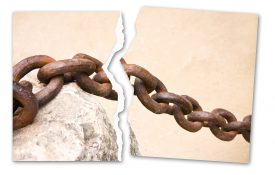-
What’s “Fair” Depends on Where You Come From
The mentality that “you get what you earn” is widely accepted as what is “fair” in most Western societies. But is this concept of distributive justice universally considered fair, or is it a culture-bound phenomenon? Marie Schӓfer and colleagues wanted find out. Their research, recently published in Psychological Science, examined how children in three different societies made merit distributions. The researchers chose to look at German children as a representation of modern Western culture, children from the Samburu African tribe to represent gerontocratic society (rule by elders), and children from the ≠All Hai||om African tribe to represent an egalitarian society.
-
A Tutorial on Evaluating Hypotheses Using Bayesian Methods
What do black bears have in common with Bayesian statistics? Both make an appearance in a 2013 paper written by Rens Van de Schoot, Marjolein Verhoeven, and Herbert Hoijtink in the European Journal of Developmental Psychology. In this paper, the authors use a hiking trip to illustrate Bayesian thinking and its advantages over traditional, sometimes called frequentist, statistics. During a hiking trip in Alaska, one of the Dutch authors observed a bit of black fur behind some bushes. Was it a bear?
-

Psychosis and Violence Aren’t Strongly Linked
Violent individuals are often assumed to suffer from a long history of mental illness that compels them to act destructively, but the link between psychosis and aggressive acts may be weak.
-
Center for Advanced Study in the Behavioral Sciences
The Center for Advanced Study in the Behavioral Sciences (CASBS) at Stanford University is now accepting applications for residential fellowships for the 2016-17 academic year. Imagine a place where great minds are brought together to confront the problems of the day, where original interdisciplinary thinking is the norm, where extraordinary collaborations become possible, where ideas can change our world. CASBS was founded as such a place in 1954 and remains so today. CASBS has hosted generations of scholars and scientists who come for a year as fellows.
-
Perspectives on Psychological Science
Perspectives on Psychological Science: Volume 10, Number 4 Perspectives on Psychological Science, a journal of the Association for Psychological Science, publishes an eclectic mix of provocative reports and articles, including broad integrative reviews, overviews of research programs, meta-analyses, theoretical statements, opinion pieces about major issues in the field, and even occasional humorous essays and sketches.
-
A New You: Behavior Change May Drive Personality Change
Do you want to be more productive at work? Do you want to stop worrying so much, or to be more compassionate toward others? If so, you’re not the only one — judging, that is, by the number of self-help books and seminars that tout personality-change regimens. But what does it really take to alter your personality? In a 2014 article published in the European Journal of Personality, researchers Marie Hennecke (University of Zurich), Wiebke Bleidorn (University of California, Davis), Jaap Denissen (Humboldt-University Berlin), and Dustin Wood (Wake Forest University) presented a framework describing three preconditions for self-directed personality change.

